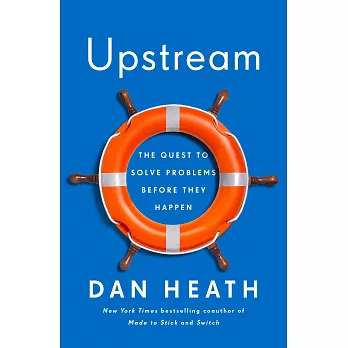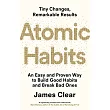紐約時報暢銷作家、《零偏見決斷法》作者丹.希思告訴你:想真正解決棘手問題?「事前預防」絕對更勝於「事後補救」!
在生活中,人們總是經常陷入反應的循環之中,往往都是站在末端應對突如其來發生的問題,卻從沒有從首端解決發生問題的系統。警察追趕壞人、醫生為患有慢性疾病的病人提供治療、客服中心總是對客戶的投訴應接不暇。可是有許多的犯罪問題、慢性疾病與客戶投訴都是可以事先預防的,為何我們總是努力於位居末端反應而非預防?
《紐約時報》暢銷書作者Dan Heath與解決非常規問題的人們訪談了數百次,得出了在問題發生之前如何預防問題本身的獨特見解。Dan Heath認為這一切的成因都歸於「問題盲目性」,因為這可能讓我們無視於中間存在的嚴重問題。透過作者讓我們了解到,世界上是有人克服了障礙,經由從上調整系統模式,並讓整體都得到了即刻的改變。一個旅行網站將預定系統進行了一些簡單的調整,每年就避免了2000萬個客服問題; 一個城市學區在得知可以預測哪些學生將會輟學後,將輟學率降低了一半; 一個歐洲國家透過改變該國文化,幾乎消除了青少年酗酒和吸毒的現象。
這就是從根本調整了預防問題的實際解決方案,而不單單是對問題的發生做出反應。作者的提醒,也許能夠讓你的生活避免掉更多問題,而非忙於處理。(文/博客來編譯)
New York Times bestselling author Dan Heath explores how to prevent problems before they happen, drawing on insights from hundreds of interviews with unconventional problem solvers.
So often in life, we get stuck in a cycle of response. We put out fires. We deal with emergencies. We stay downstream, handling one problem after another, but we never make our way upstream to fix the systems that caused the problems. Cops chase robbers, doctors treat patients with chronic illnesses, and call-center reps address customer complaints. But many crimes, chronic illnesses, and customer complaints are preventable. So why do our efforts skew so heavily toward reaction rather than prevention?
Upstream probes the psychological forces that push us downstream—including “problem blindness,” which can leave us oblivious to serious problems in our midst. And Heath introduces us to the thinkers who have overcome these obstacles and scored massive victories by switching to an upstream mindset. One online travel website prevented twenty million customer service calls every year by making some simple tweaks to its booking system. A major urban school district cut its dropout rate in half after it figured out that it could predict which students would drop out—as early as the ninth grade. A European nation almost eliminated teenage alcohol and drug abuse by deliberately changing the nation’s culture. And one EMS system accelerated the emergency-response time of its ambulances by using data to predict where 911 calls would emerge—and forward-deploying its ambulances to stand by in those areas.
Upstream delivers practical solutions for preventing problems rather than reacting to them. How many problems in our lives and in society are we tolerating simply because we’ve forgotten that we can fix them?



 天天爆殺
天天爆殺  今日66折
今日66折 


























 博客來
博客來 博客來
博客來 博客來
博客來 博客來
博客來 博客來
博客來